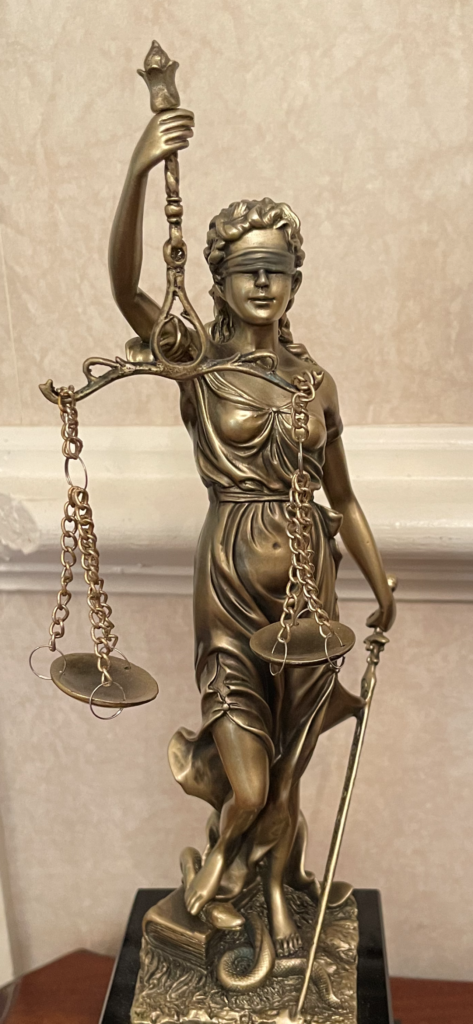In the state of Georgia, personal injury trials serve as a crucial means for victims of negligence or intentional harm to seek justice and fair compensation for their injuries. These trials rely heavily on the presentation of compelling evidence to establish the defendant’s liability and the extent of the damages suffered by the plaintiff. One common and often contentious aspect of the evidence presented in court is hearsay—out-of-court statements offered to prove the truth of the matter asserted. Understanding the role of hearsay in court proceedings, as well as its admissibility and potential impact on a case, is essential for both legal practitioners and those involved in personal injury trials.
presented in court is hearsay—out-of-court statements offered to prove the truth of the matter asserted. Understanding the role of hearsay in court proceedings, as well as its admissibility and potential impact on a case, is essential for both legal practitioners and those involved in personal injury trials.
A. Georgia’s hearsay rule, as outlined in the Official Code of Georgia Annotated (O.C.G.A.) § 24-8-801, states that hearsay is generally inadmissible as evidence in a trial. Hearsay is defined as an out-of-court statement made by someone other than the testifying witness, offered to prove the truth of the matter asserted in the statement. This rule is based on the idea that hearsay evidence may be unreliable, as it is not subject to the usual tests of credibility, such as cross-examination and the opportunity for the judge or jury to assess the declarant’s demeanor.
B. Despite the general rule against hearsay, Georgia law recognizes several exceptions that allow for the admission of hearsay statements in certain circumstances. These exceptions include:
C. In determining the admissibility of hearsay evidence, the judge plays a crucial role. It is the judge’s responsibility to assess whether the proffered hearsay statement falls under one of the recognized exceptions and to weigh its potential impact on the trial. The judge must also ensure that the hearsay evidence, if admitted, complies with other rules of evidence and procedural requirements, such as proper
A. In personal injury cases, some common types of hearsay statements that may be encountered include:
B. To effectively challenge hearsay evidence in a personal injury trial, consider employing the following strategies:
Admissible hearsay evidence can play a crucial role in the outcome of personal injury trials. When a hearsay statement is allowed under one of the exceptions, it can provide valuable information for the jury to consider when determining fault and assessing damages. For instance, a medical professional’s statement in a patient’s records about the severity of the injuries sustained can carry significant weight in establishing the extent of the victim’s suffering and the amount of compensation they deserve.
On the other hand, inadmissible hearsay evidence can negatively impact a trial if it is improperly introduced or considered by the jury. In some cases, the inclusion of inadmissible hearsay may lead to a mistrial, an appeal, or even a reversal of the verdict. This can prolong the legal process, increase costs for both parties, and potentially result in an unjust outcome. Therefore, it is essential for attorneys to be well-versed in hearsay rules and exceptions to ensure that only admissible evidence is presented and considered in a trial.
One of the most important steps in effectively handling hearsay in personal injury trials is to consult with an experienced personal injury attorney. They will have a deep understanding of the rules 
Being well-prepared for trial is essential in addressing hearsay concerns. This includes conducting a thorough review of all evidence, witness statements, and any other relevant documentation. By familiarizing yourself with the details of the case, you can anticipate potential hearsay issues and be ready to respond to them appropriately. This may involve preparing objections to inadmissible hearsay evidence, gathering additional supporting evidence to refute hearsay statements, or crafting arguments to admit hearsay evidence that may be beneficial to your case.
It is crucial to be proactive when dealing with hearsay issues in a personal injury trial. This includes raising any concerns about hearsay evidence with the court during pre-trial hearings or conferences, and filing any necessary motions to address the admissibility of specific evidence. Additionally, during the trial, be vigilant in objecting to inadmissible hearsay evidence as it arises and be prepared to argue your position effectively. By taking a proactive approach to managing hearsay concerns, you can help ensure that your case proceeds smoothly and that only relevant and admissible evidence is considered by the jury.
In conclusion, hearsay plays a significant role in personal injury trials and can impact the outcome of a case. The admissibility of hearsay evidence depends on the specific circumstances of the case and whether any exceptions apply. Inadmissible hearsay evidence can lead to complications in a trial, including potential mistrials or appeals, while admissible hearsay evidence can strengthen a party’s case. It is crucial to be well-prepared for trial, anticipate potential hearsay issues, and proactively address them with the court.
Given the complexity of hearsay rules and the potential impact on your case, it is highly recommended that you seek the guidance of an experienced personal injury attorney when dealing with hearsay issues. A knowledgeable lawyer, like Scott S. Cohen and Thomas C. Sinowski, II from Cohen & Sinowski, can help you navigate the nuances of hearsay laws, develop strategies to address any concerns, and ensure that your case is presented effectively.
Cohen & Sinowski specialize in Personal Injury Law and are dedicated to providing top-notch legal support to clients in Marietta, GA. With their commitment to offering a free consultation, no fee unless they win, and a local focus (#localmatters), you can trust that they will work tirelessly on your behalf.
Don’t hesitate to reach out to Scott and Tommy at Cohen & Sinowski for your personal injury needs:
Address: 30 Trammell St. SW, Marietta, GA
Phone: 404-351-8888
Website: www.cohensinowski.com
Contact form: Contact Us
Take the first step towards securing the representation you deserve by contacting Cohen & Sinowski today. Remember, your consultation is free, and there’s no fee unless we win your case.
Understanding Georgia’s hearsay laws is essential for anyone involved in a personal injury case, as it can greatly influence the outcome of the trial. By being well-informed about hearsay rules and working with an experienced attorney, you can help protect your interests and work towards a fair resolution in your personal injury case. Stay proactive, prepared, and informed, and you’ll be better equipped to handle any hearsay challenges that may arise during your trial.